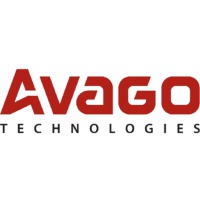Virtualization has dramatically improved datacenter computing, storage and networking allocation efficiency. What’s more, it still holds the promise of enabling the automated, dynamic re-allocation of resources to harmonize hardware and software requirements with fluctuating data demands, simplify IT management and reduce costs. Today, virtualization helps reduce hardware and other costs by streamlining the deployment of traditional heterogeneous, application-specific servers.

However, most private and public cloud deployments today are based on scale-out homogeneous racks of direct attached storage (DAS) servers. Because these racks are identical, they vastly simplify purchasing, provisioning, maintenance and support of server hardware. Deploying applications and migrating them to other servers in scale-out environments is far more difficult than in traditional datacenters because a higher level of orchestration is required to deploy and track applications, configure IP addresses, allocate data to the correct nodes and perform other management functions.
Deploying applications in scale-out architectures makes it extremely difficult for most enterprises to manage, provision, and pool resources and allocate jobs efficiently and reliably within the cluster since they lack the expertise to manage a private cloud scale-out cluster. Only high-performance computing (HPC) clusters and Web 2.0 hyperscale datacenters have mastered this specialty.
Over the past 20 years, efforts to simplify deployments and reduce IT costs of public and private clouds have driven the development of a large number of tools to help automate the configuration and deployment of computing resources. These tools – combinations of software and hardware – typically addressed only part of the overall automation challenge. Only in recent years did these tools achieve the ultimate goal of allowing IT departments to specify and request all resources in a computing environment – compute, memory, storage and networking – through a single user interface and deploy new systems in minutes, not days.
OpenStack accelerates cloud deployments
OpenStack technology enables IT administrators to manage compute, memory, storage and networking resources through a web interface to accelerate deployments and reduce costs. OpenStack is a global collaboration of developers and cloud computing technologists with backgrounds at public clouds, HPC and Web 2.0. The group is producing an open-source cloud computing platform that can be used for both private and public clouds. The project aims to deliver components that can be used for implementing private and public clouds, and that are API-compatible with Amazon’s cloud services.
OpenStack users include corporations, service providers, VARs, SMBs, researchers and global datacenters seeking to deploy large-scale private or public clouds that leverage the design flexibility, technology and support of a global open-source community. OpenStack has emerged as the open-source leader for widespread datacenter management.
Avago helps simplify deployments of scalable storage in OpenStack environments
Avago solutions for OpenStack and other cloud computing environments include its extensive line of SAS and MegaRAID controller cards.
Avago's participation in OpenStack includes its work with Nebula to deliver a higher level of orchestration to simplify the deployment of scalable storage in highly cost-effective, easy-to-use, private cloud computing infrastructures, while maintaining enterprise-level storage reliability. In particular, Avago is collaborating with Nebula to create application acceleration and high-performance, low-cost data-sharing solutions for cloud computing environments coping with today’s data deluge. The companies are also working together on new open standards and certification.
Nebula provides systems that enable businesses to easily, securely and inexpensively build large cloud computing infrastructures with turnkey, highly autonomous OpenStack appliances. Avago's deep experience in data protection and storage reliability combined with the Nebula One solution will enable higher-performance storage layers and help customers extract more value from their infrastructure investments.
Cloud growth forecast to continue
The market for public cloud IT infrastructure is forecast to grow from $11.1 billion in 2013 to $20.1 billion in 2017, a five- year compound annual growth rate (CAGR) of 17%*, according to research firm IDC. Total market revenue for private cloud IT infrastructure is expected to grow from $12.3 billion to $22 billion in 2017, a five-year CAGR of 18%**.
Advertisement
Learn more about Avago Technologies





